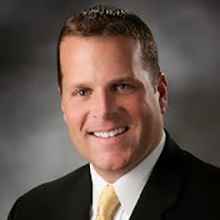
I keep hoping that one of these days I will turn on the morning news and see something positive about policing. National events impact many of our citizens here. They want reassurance that our use of force and interaction with those we serve are not what is happening in some areas of the country. They want to know how Duluth officers are different than what they are reading and seeing on the news; specifically, what we are doing to ensure force is used as a last option and that we are treating all citizens fairly, with respect and dignity.
One of the first initiatives I undertook as chief over 9 years ago was to implement an early warning system to track complaints, use of force incidents, accidents, sick leave and injuries all in one database. The system notifies supervisors when an officer is generating more-than-average incidents in any of these categories. The goal is to intervene and provide training, coaching, guiding and mentoring to prevent misconduct. I have become such a believer in early intervention systems that we recently upgraded our software to the most advanced system available.
Rarely does an officer suddenly jump into serious misconduct. There are usually warning signs. When caught early and with proper supervisory involvement, the officer can get on track. Just like we work to prevent crime, we work to prevent misconduct through the use of this system along with good leadership, policies and oversight.
Another major area we focus on is using communication to de-escalate tense situations. Our best officers rarely have to fight with people and are able to gain cooperation through talking. I’ve heard of one college teaching something called “ask, tell, make.” This is terrible way to teach potential police officers and leads to problems that make the news.
Study after study clearly indicates the public wants police officers to use their communication skills to calm situations down. Because I spend time on the street paying attention to this very issue, I know our officers understand the need to communicate to resolve conflict and use force only when necessary.
As chief I also am keenly aware of the need to balance use of force and officer safety. That balance is like walking a tightrope for our officers. I am concerned that an officer or individual could get hurt because of a decision not to take action for fear of discipline. But because of our hiring, training and practices, Duluth officers clearly understand the need to communicate and slow incidents down with the intent of resolving things peacefully.
A lot of concerns in policing boil down to the critical issue of hiring the right people. We look for life experience, character, education, adversity and communication skills as a foundation to hire the best people. Having hired two-thirds of our officers, I can assure you that we have some of the best officers in the country serving this city. Additionally, community members are a critical part of our hiring process and are involved at interviews at all levels.
As the recent past president of the Minnesota Chiefs of Police Association, I have again been hearing from chiefs about the difficulties in finding and hiring suitable officer candidates. There was a recent story in the Star Tribune that highlighted the lack of diversity in many urban and suburban police departments in Minnesota. I believe it is time for a change to the Minnesota police licensing system because the current licensing requirements filter out valuable second-career candidates, the poor and people of color. While in the ’70s and ’80s this system helped improve our education and training requirements, it simply has not kept up with the evolution of policing.
Currently, if someone with a four-year degree in business or social work wants to become a police officer in Minnesota, they will need to go back to school for a year and then put themselves through a full-time academy at their own expense. It is time for a change. I am hopeful that our elected officials see the need for changes to current requirements to help increase the pool of candidates that our communities are seeking.
With 700,000-plus police officers in this country, you are going to have some abuse their authority. But the overwhelming majority of police officers have a service-before-self mentality and want to build healthy, positive relationships with those we serve.
This post was originally published on December 19, 2015 on Chief Ramsay’s blog.